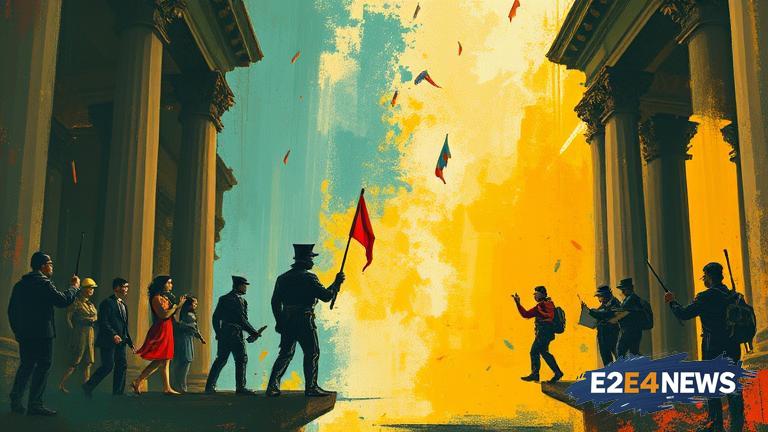The right to think freely is a fundamental human right that is essential for the development of individuals, communities, and societies. However, this right is constantly under threat from various sources, including governments, institutions, and special interest groups. Censorship, propaganda, and disinformation are just a few of the tools used to undermine critical thinking and intellectual autonomy. The consequences of these threats can be severe, ranging from the suppression of dissenting voices to the erosion of trust in institutions. In recent years, the rise of social media has created new challenges for intellectual freedom, with algorithms and echo chambers amplifying certain viewpoints while suppressing others. Furthermore, the proliferation of fake news and disinformation has made it increasingly difficult for individuals to discern fact from fiction. Despite these challenges, there are many individuals and organizations working to promote and protect intellectual freedom. These efforts include advocating for policies that support critical thinking and media literacy, as well as creating alternative platforms and networks that promote diverse perspectives and viewpoints. Moreover, there is a growing recognition of the importance of intellectual freedom in promoting social justice and human rights. By protecting the right to think freely, individuals and communities can challenge dominant narratives and power structures, and work towards creating a more just and equitable society. The struggle for intellectual freedom is not new, and has been ongoing throughout history. From the ancient Greeks to modern-day activists, individuals have fought to protect their right to think, speak, and express themselves freely. Today, this struggle continues, with new challenges and opportunities emerging in the digital age. The importance of intellectual freedom cannot be overstated, as it is essential for the development of individuals, communities, and societies. Without the ability to think critically and freely, individuals are unable to make informed decisions, challenge dominant narratives, or participate fully in the democratic process. In addition, intellectual freedom is essential for promoting creativity, innovation, and progress. By allowing individuals to think freely and express themselves without fear of censorship or reprisal, societies can tap into the full range of human creativity and potential. However, the threats to intellectual freedom are real and ongoing, and require a concerted effort to address. This includes promoting media literacy and critical thinking, supporting independent media and alternative platforms, and advocating for policies that protect intellectual freedom. Ultimately, the right to think freely is a fundamental human right that is essential for the development of individuals, communities, and societies. By protecting and promoting this right, we can work towards creating a more just, equitable, and prosperous world for all. The right to think freely is not just a moral or philosophical issue, but a practical one, with real-world consequences for individuals, communities, and societies. It is essential that we take action to protect and promote this right, and work towards creating a world where individuals are free to think, speak, and express themselves without fear of censorship or reprisal. In conclusion, the struggle for intellectual freedom is ongoing, and requires a concerted effort to address the challenges and threats that arise. By promoting critical thinking, media literacy, and intellectual autonomy, we can work towards creating a more just and equitable society, and protecting the fundamental human right to think freely.
